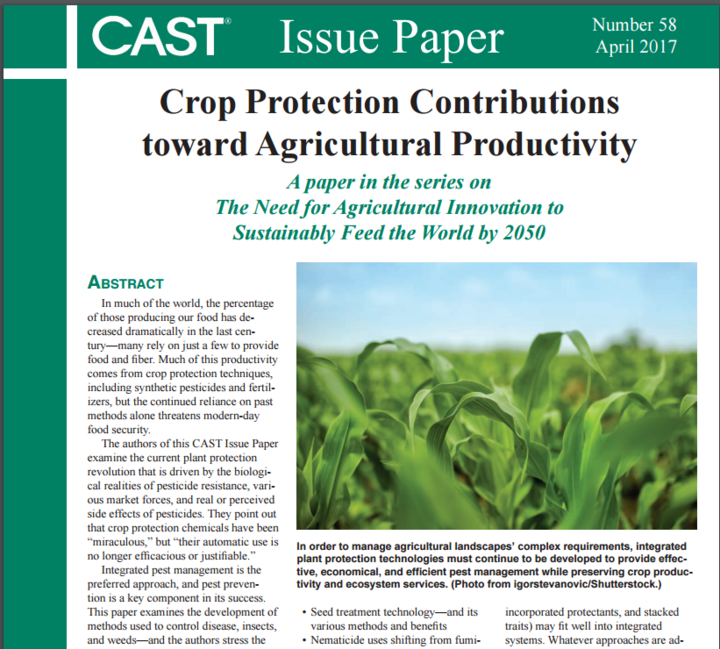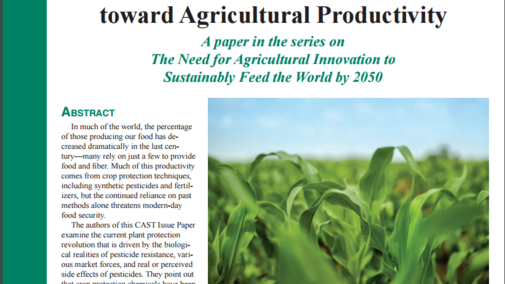Crop Protection Contributions toward Agricultural Productivity, a paper in the series on the Need for Agricultural Innovation to Sustainably Feed the World by 2050, published by the Council for Agricultural Science and Technology (CAST).
Many rely on just a few to provide food and fiber—and crop protection techniques are a major factor in this essential productivity. But the continued reliance on past methods alone threatens modern-day food security. Innovation and a push for the development of integrated plant protection technologies must continue to provide effective, economical, and efficient pest management.
The authors of this CAST Issue Paper examine the current plant protection revolution that is driven by the biological realities of pesticide resistance, various market forces, and real or perceived side effects of pesticides. They point out that “crop protection chemicals have been miraculous, but their automatic use is no longer efficacious or justifiable.”
This science-based review considers many plant protection trends, including the following:

- Disease management and the need for new modes of action
- Insect management and issues involving pesticides
- Weed management and the need for new technologies to control the evolution of resistant weeds
- Biological control of plant pathogens, insects, and weeds—and the need for further research in these areas
- Seed treatment technology—and its various methods and benefits
- Nematicide uses shifting from fumigation and banded row applications to seed treatments
Led by Task Force Chair Susan T. Ratcliffe, the authors of this paper consider new technologies such as drones, smart sprayers, and specially designed cultivators—and they examine current biotech advancements such as CRISPR-Cas9 and other techniques that may fit well into integrated systems. They emphasize the need for research, communication, and collaboration as scientists “develop integrated strategies for managing pests while preserving ecosystem services and farm productivity.”
This CAST Issue Paper (IP58) and its companion Ag quickCAST are available online at the CAST website, along with many of CAST's other scientific publications.
Task Force Authors
Susan T. Ratcliffe (Chair), University of Illinois, Urbana
Matthew Baur, University of California-Davis
Hugh J. Beckie, Agriculture and Agri-Food Canada, Saskatoon, Saskatchewan
Loren J. Giesler, University of Nebraska-Lincoln
Norman C. Leppla, University of Florida, Gainesville
Jill Schroeder, U.S. Department of Agriculture, Washington, D.C.
Contacts
Susan T. Ratcliffe-Phone: 217-333-9656; Email: sratclif@illinois.edu
Kent Schescke-Phone: 515-292-2125, ext. 231; Email: kschescke@cast-science.org

